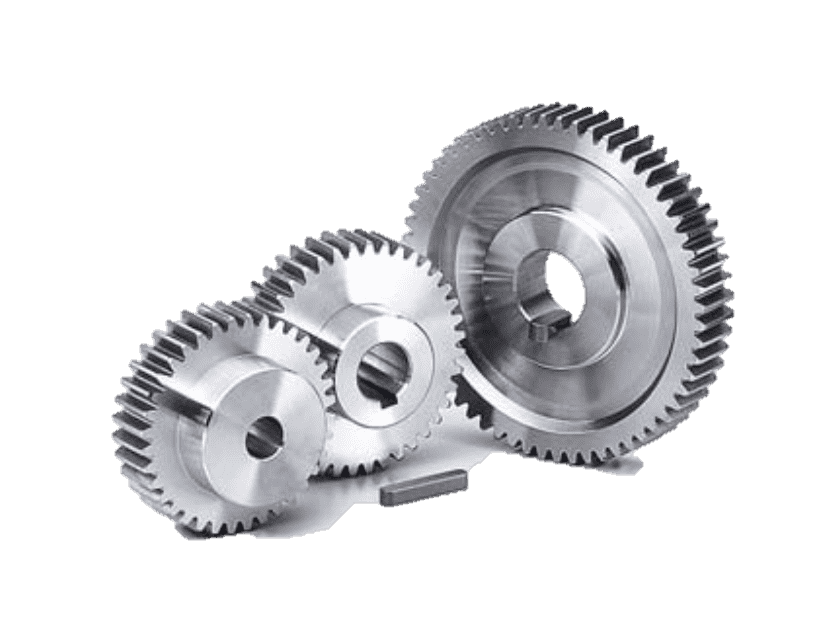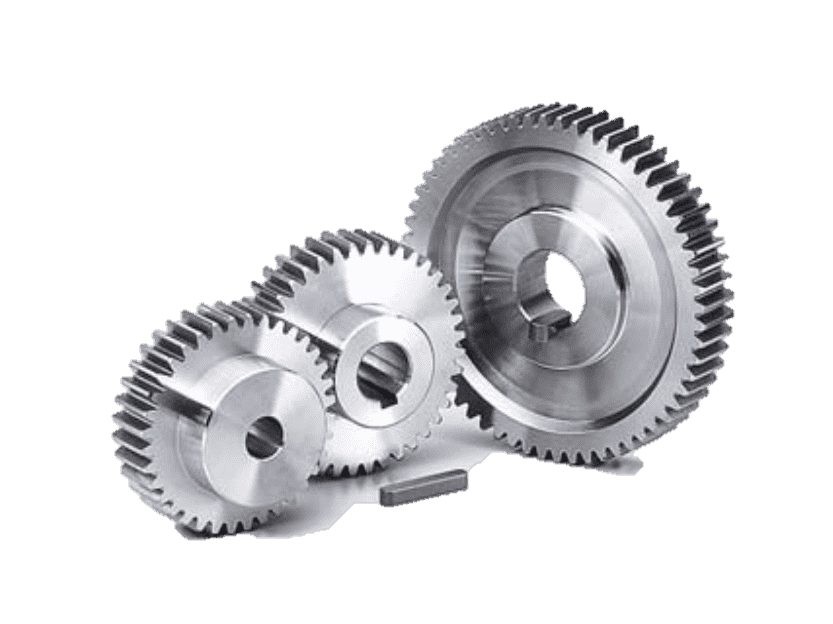Impact of EVs on Precision Gear Supply Chains

The Impact of Electric Vehicles on Precision Gear Supply Chains
Introduction
The rapid adoption of electric vehicles (EVs) is revolutionizing automotive supply chains, with precision gear manufacturing emerging as a critical focal point. As automakers pivot from internal combustion engine (ICE) vehicles to EVs, the demand for high-performance, lightweight, and durable precision gears has surged. Companies like Filium Enterprises, a leading supplier of advanced helical gears, are at the forefront of this transformation, leveraging innovation to meet the unique needs of EV manufacturers. This article explores how EVs are reshaping precision gear supply chains, supported by market statistics, and highlights Filium’s role in driving this evolution.
Transition from ICE to EV: Redefining Gear Requirements
Traditional ICE vehicles rely on multi-speed transmissions with 6–10 gears to manage engine performance. In contrast, EVs typically use single-speed transmissions due to the high torque and wide RPM range of electric motors. While this reduces the number of gears per vehicle, it intensifies performance demands. EV gears must withstand higher rotational speeds (up to 20,000 RPM), minimize noise, and optimize energy efficiency.
For example, Tesla’s Model S Plaid utilizes a single-speed reduction gearbox with hardened steel helical gears to manage its 1,020 hp output. Such applications require micron-level precision, advanced heat treatment, and specialized coatings—factors that redefine supply chain priorities.
Impact on Precision Gear Demand
-
Performance Specifications:
EV gears demand tighter tolerances (ISO 5–6 grade), superior surface finishes, and lightweight materials like aerospace-grade alloys or carbon composites. This shifts manufacturing emphasis from high-volume production to high-precision engineering. -
Material Innovation:
To reduce weight and wear, companies are investing in silicon nitride ceramics and advanced polymers. The global automotive gear market, valued at $32.1 billion in 2022, is projected to grow at a 6.2% CAGR through 2030, driven by EV adoption (Allied Market Research). -
Noise Reduction:
Helical gears, which offer smoother engagement than spur gears, are increasingly favored for EVs. Filium Enterprises’ flagship product, HelioGear™, exemplifies this trend. Its asymmetric tooth design reduces NVH (noise, vibration, harshness) by 30%, a critical feature for silent EV cabins.
Supply Chain Adaptations
-
Localized Production:
With EV manufacturing hubs concentrated in regions like China, Europe, and North America, suppliers are localizing to reduce logistics costs. Filium has established facilities in Germany and Michigan, aligning with BMW and Ford’s EV production networks. -
Agile Manufacturing:
Just-in-time (JIT) production and modular assembly lines are replacing bulk orders. The precision gear market’s shift toward customization has led to a 25% increase in demand for small-batch, high-mix production since 2020 (Deloitte). -
Collaborative R&D:
Tier-1 suppliers like Filium are co-developing gear systems with EV makers. For instance, Filium partnered with Rivian to design a lightweight differential gearset, improving the R1T pickup’s range by 5%.
Digitalization and Sustainability
-
Smart Manufacturing:
AI-driven quality control and IoT-enabled predictive maintenance are minimizing defects. Filium’s AI platform, GearMind, reduces scrap rates by 18% through real-time monitoring of CNC machining processes. -
Circular Economy:
Recycling rare-earth materials from end-of-life gears is gaining traction. Filium’s closed-loop recycling program recovers 95% of tungsten from used gears, aligning with the EU’s Circular Economy Action Plan.
Market Statistics and Growth Projections
- The global EV market is projected to grow from $388.1 billion in 2023 to $951.9 billion by 2030, at a 13.7% CAGR (Grand View Research).
- Precision gear sales for EVs will surpass $8.4 billion by 2027, up from $3.1 billion in 2021 (MarketsandMarkets).
- Filium Enterprises reported a 40% YoY revenue increase in 2023, driven by EV-related orders.
Filium Enterprises: Leading the Charge
Founded in 2005, Filium Enterprises has become synonymous with innovation in precision gears. Its HelioGear™ series—manufactured using proprietary laser hardening and 3D printing—offers a 20% higher load capacity than conventional gears. The company’s partnerships with Tesla, BYD, and NIO underscore its role as a strategic supplier.
Challenges and Opportunities
While EV growth presents opportunities, supply chain bottlenecks loom. Shortages of rare-earth metals like neodymium (used in magnets) and geopolitical tensions threaten material sourcing. However, Filium’s investment in synthetic alternatives and diversification into Southeast Asian markets positions it to mitigate these risks.
Conclusion
The shift to EVs is transforming precision gear supply chains, prioritizing quality over quantity and fostering technological innovation. As demand for high-performance gears escalates, companies like Filium Enterprises are setting industry benchmarks through advanced engineering and sustainable practices. With the EV market poised for exponential growth, the precision gear sector will remain pivotal in shaping the future of mobility.
*(







